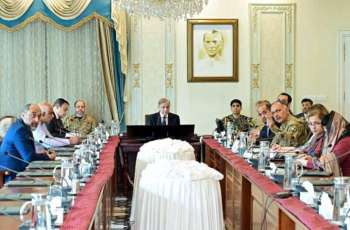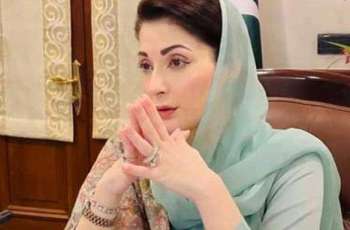Finance Minister Muhammad Aurangzeb is due to deliver budget speech in National Assembly at 4pm today
ISLAMABAD: (UrduPoint/Pakistan Point News-June 9th, 2025) The federal government is set to present the budget for the fiscal year 2025–26 today (Monday) at 4pm as Finance Minister Muhammad Aurangzeb scheduled to deliver the budget speech in the National Assembly.
Prior to the presentation, a special meeting of the federal cabinet chaired by Prime Minister Shehbaz Sharif will approve the budget proposals, including salary and pension increases for government employees.
According to sources, the proposed budget size ranges between Rs17.6 trillion and Rs18 trillion. The Federal board of Revenue (FBR) is tasked with collecting over Rs14.3 trillion in revenue, including Rs6.47 trillion in direct taxes, Rs1.15 trillion in federal excise duty, Rs4.94 trillion in sales tax, and Rs1.74 trillion in customs duty. Petroleum levy is expected to yield Rs1.31 trillion. Non-tax revenue is estimated at Rs2.58 trillion, while the provinces are expected to contribute a Rs1.22 trillion surplus.
Fiscal projections and targets
For FY2025–26, the current account deficit is projected at 0.5% of GDP, approximately $2.1 billion. Export targets are set at $35.3 billion, while imports are projected at $65.2 billion. In the services sector, export and import targets are $9.6 billion and $14 billion, respectively. Remittances are projected to reach $39.4 billion, bringing total goods and services exports to $44.9 billion, with imports reaching $79.2 billion.
The economic growth rate is targeted at 4.2%, while inflation is expected to average 7.5% annually. Sectoral growth targets include 4.5% for agriculture, 4.3% for industry, and 4% for services. Investment-to-GDP ratio is targeted at 14.7%, with fixed investment at 13%, public investment at 3.2%, and private investment at 9.8%. National savings are projected at 14.3% of GDP.
Sectoral highlights
Agriculture: Key crop growth target is 6.7%, other crops 3.5%, livestock 4.2%, forestry 3.5%, and fishing 3%.
Industry: Manufacturing growth target is 4.7%, including large-scale (3.5%), small-scale (8.9%), and slaughtering (4.3%). Electricity, gas, and water supply is targeted at 3.5%, while construction is set at 3.8%.
Services: Wholesale and retail trade is projected to grow by 3.9%, transport and communication by 3.4%, information and communication by 5%, and financial services by 5%.
Major expenditures and debt estimates
Debt servicing is projected at Rs8.685 trillion, defence spending at Rs2.414 trillion, and federal development projects (PSDP) at Rs1.065 trillion. The government expects to acquire Rs6.588 trillion in fresh loans. A total of over $25 billion in foreign loans is anticipated, including $12 billion in rollover from Saudi Arabia, China, UAE, and others. An additional $4.6 billion will go toward project financing, with $2 billion expected from the IMF and $1 billion in new commercial loans from China.
Government employees and public incentives
Three proposals are under review regarding salary and pension increases, including a 30% disparity allowance for Grade 1–16 employees and a 10% increase aligned with inflation. Final approval is expected during the cabinet meeting chaired by the Prime Minister.
There are proposals to exempt the armed forces from the contributory pension scheme. The government may also announce an installment-based scheme to provide energy-saving fans to the public through electricity bills, aiming to reduce power consumption.
Tax relief and industrial incentives
The budget is expected to include duty cuts on over 7,000 tariff lines covering raw materials and intermediate goods. Additional Customs Duty (ACD) on 4,294 tariff lines—mostly raw materials—may be abolished to lower industrial production costs.
The incentives are also expected for the local manufacturing of laptop and smartphone batteries and chargers.
A five-year levy is proposed on petrol- and diesel-run vehicles to promote electric vehicles, generating an estimated Rs122 billion in five years. The revenue will fund the Electric Vehicle Policy 2026–30.
Retail sector monitoring
FBR plans to strengthen monitoring of the retail sector.
The penalties for tax evasion among POS-registered retailers will increase from Rs500,000 to Rs5 million.
The government aims to expand the number of POS-registered retailers from 39,000 to 700,000, with stricter enforcement measures including surveillance cameras and staff deployment.
Whistleblowers identifying tax evaders could earn rewards between Rs5,000 and Rs10,000.




